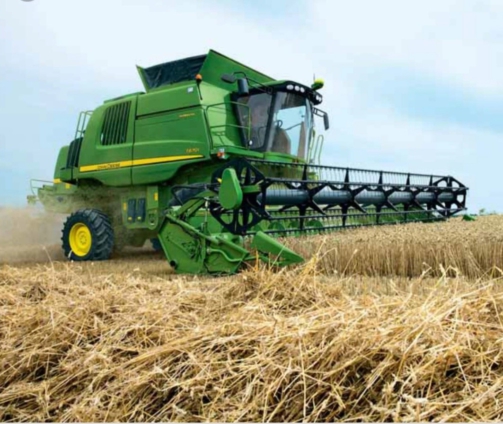Rice is one of the major food staples consumed in Ghana, but one in which the country is food insecure, with consumption outstripping domestic production and more than half of rice consumed being imported.
The economic costs of relying on imported rice are high and rising.
Ghana has set an ambitious target of ending rice imports by the 2023/24 crop season. In his tour to the Volta Region, Agric Minister Dr Owusu Afriyie Akoto visited a local rice factory in Sogakope and explained that the target is on course.
Ghana imports over $200 million worth of rice annually. This is development stakeholders have described as worrying.
As part of his tour of the Volta Region, to see first hand the challenges plaguing the nation's Agric sector and have a personal interaction with farmers, the Agric Minister visited one of the largest local rice factories.
At the factory, he reiterated government's quest to cut totally the country's importation of rice by 2023.
According to Dr Owusu Akoto Afriyie, he is confident Ghana can achieve its goal of rice self-sufficiency.
"We are encouraging more and more of such factories to be built around. As I speak to you, the Ministry for Food and Agriculture in anticipation of the rapid expansion of rice production, if you remember, we promised the people of this country that by 2023/24, Ghana will be self-sufficient with rice," he told JoyNews.
"In preparation, the biggest bottleneck is not the farmer, or the land or the seed, it's to do with the milling capacity."
Global Agri Development Company runs the rice factory that produces at least 700 bags of 25 kilograms of rice per day.
General Manager of the company, Joel Tsatsu said he is also optimistic that with the right investment, the goal can be met.
"We can be rice sufficient in Ghana, we are one of the big players, and there are others who are coming up, I believe that in the future, we can be there."
The company runs entirely on rice produced locally and has in the process created a partnership between the company and local producers.
One of the Cardinal Principles of the Planting for Food and Jobs program is to make the country produce what it consumes, in the process creating jobs and sustainable livelihood and in extension weaning the country off import dependence.
Whilst the program has chalked some significant success, there are still some teething problems that must be tackled head-on, including the availability of fertilizers and other farming inputs. Without this, the country's import bill may even rise and shoot through the roof.
Latest Stories
-
Diplomatic Corps hail Bawumia’s integrity and leadership qualities
12 minutes -
To chocolate, Ghana’s pride by Bioko
30 minutes -
Chartered Institute of Bankers, Ghana, confers Honorary Fellow status on Victor Yaw Asante
52 minutes -
BoG marks end of year with Thanksgiving Service
1 hour -
Ghana’s Next Sports Minister: The Debate Begins
1 hour -
Election 2024: NPP advised to be mindful of the reasons being ascribed to their election lost
2 hours -
GNFS urges Ghanaians to prevent fires during yuletide
2 hours -
Report tobacco users who smoke publicly – FDA advises
2 hours -
Abdallah Ali-Nakyea elevated to Associate Professor at UG School of Law
2 hours -
Kick2build commissions 5 libraries in Klo Agogo, donates school supplies
3 hours -
Slim and Fit Ghana donates to kids at Motherly Love Orphanage in Kwabenya
3 hours -
We’ll be reorganising ourselves for the battles of tomorrow – NPP
3 hours -
Ghanaian teacher Morkporkpor Fiador’s GWR Read-A-Thon attempt postponed
3 hours -
Revocation of licences of UT, Capital banks were strict requirements from IMF – Dr. Addison
3 hours -
MP Cynthia Morrison among 280 members expelled by Agona West NPP
3 hours

